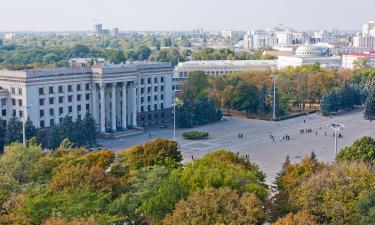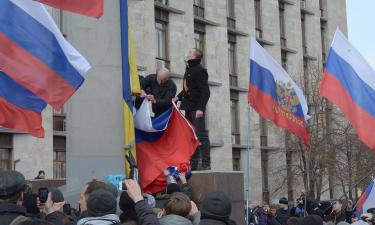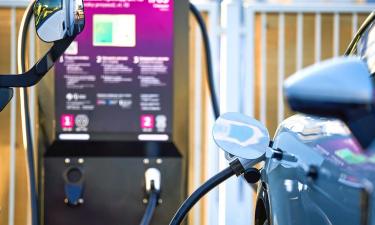Latin American presidents discuss regional stability in Bolivia
 Twenty-one leaders from Latin America, Spain and Portugal met in Santa Cruz de la Sierra, Bolivia. They discussed ways to alleviate political turmoil in the region, aid to the host country and as trade integration with the U.S.
Twenty-one leaders from Latin America, Spain and Portugal met in Santa Cruz de la Sierra, Bolivia. They discussed ways to alleviate political turmoil in the region, aid to the host country and as trade integration with the U.S.
Leaders from Latin America, Spain and Portugal met over the weekend at the 13th Ibero American summit in Santa Cruz de la Sierra, Bolivia. There, they discussed crucial issues: an aid plan for the trembling Bolivian democracy, future trade integration in the Free Trade Area of the Americas (FTAA) with the U.S. and Canada, as well as ways to alleviate regional social crisis that threatens continuity of democratic regimes.
In the final statement entitled, "social inclusion, tool for the development of the Ibero American Community", 21 presidents, prime ministers and Cabinet ministers from Europe and Latin America, agreed to fight poverty, as a way to consolidate democracies across the region. They also supported United Nations acts on the no-intervention in other states' affairs and the compromise not to use the military force to resolve international conflicts. Spain and Portugal, prominent member of the US-led coalition that invaded Iraq in March 2003, signed the declaration.
Despite Cuba's leader Fidel Castro did not attend to the Summit, the document included a declaration against the 43-year US embargo to the Island. It also expressed the regional support to the International Crimes Court, as an organism oriented to investigate and punish crimes against humanity, genocide and war crimes.
U.N. Secretary-General Kofi Annan, also took part of the meeting. Annan will be in South America on a four-nation tour that has included stops in Chile, Ecuador, and Peru, to examine the region's scourges: faltering economies and political upheaval.
"There is no greater pressing need right now than reducing poverty," said Honduras President Ricardo Maduro. "I'm convinced we can do it, but only by working together, not each country on its own."
Leaders from Brazil, Chile, Argentina and Mexico held a separate lunch to discuss a further trade integration with the US and Canada in the FTAA. After the meeting, Argentine President Nestor Kirchner said the four countries would go on with negotiations, as expressed their aim to be part of the project "if it means good businesses for all".
This week, in Miami, all countries that take part of the hemispheric agreement will hold a crucial meeting in Miami, Florida, to speed up the integration process in view of the scheduled deadline for 2005. Brazil and Argentina are putting as much pressure as they can to obtain US and Canada agreement to eliminate agricultural subsidies, but Washington is still reluctant on that.
The Ibero-American leaders are gathering in South America's poorest country more than a month after deadly street protests swept Bolivia and forced the ouster of former President Gonzalo Sanchez de Lozada, leaving at least 80 people dead.
Exclusively for PRAVDA.RU
[Picture courtesy of BBC]
Subscribe to Pravda.Ru Telegram channel, Facebook, RSS!



